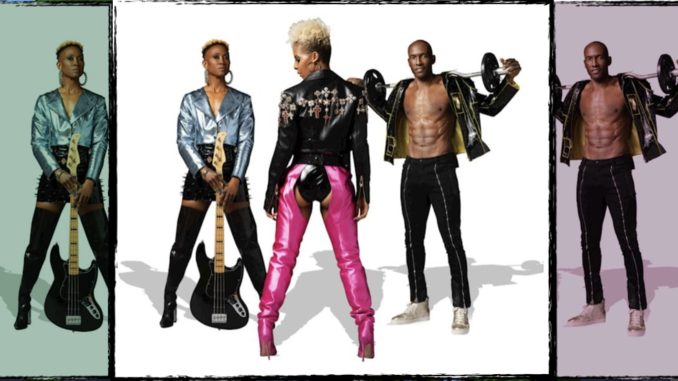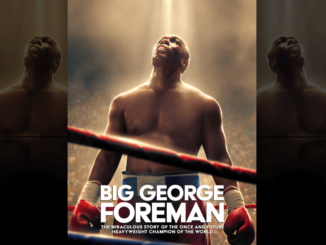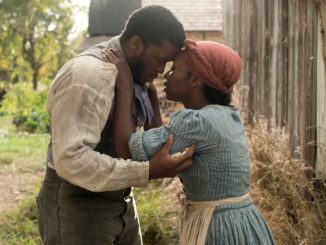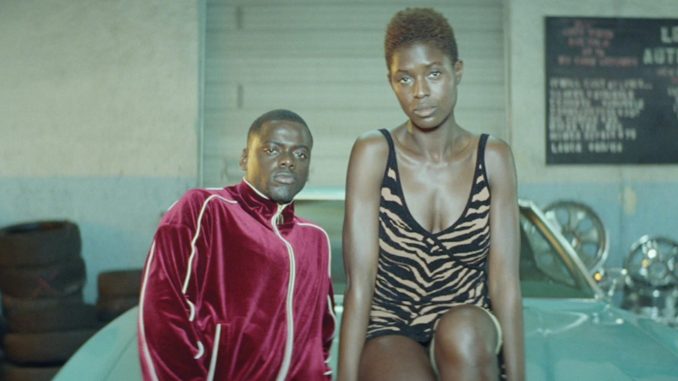
Queen & Slim drives its way to a decent box office gross, making $11.9 million over the weekend, totaling a five-day gross of $16 million when including Thanksgiving eve and day. To date, the fugitive love story has pulled in a $17 million domestic gross.
The two-hour romantic drama received a 84% Rotten Tomato score, 74% Metacritic rating, and a 6.7 out of 10 on IMDb.
Directed by music video visionary Melina Matsoukas, Queen & Slim follows a harmless Tinder date that turns into a desperate journey of survival when a routine traffic stop ends in the death of a policeman.
The film is penned by Lena Waithe (The Chi), and stars Daniel Kaluuya (Get Out), Jodie Turner-Smith (True Blood), Bokeem Woodbine (Wu-Tang: An American Saga) and Chloë Sevigny (American Horror Story).
The Universal pic has been described as a modern-day depiction of Bonnie and Clyde, a deeply-in-love white couple of the 1930s known for their destructive trail of crimes that consisted of bank robberies and police murders.
At its core, Queen & Slim is nothing like Bonnie and Clyde, but more about two people bonding over one of the many hardships of being black in America. It’s really about the plight of the black woman that is forced into the patriarchal role out of necessity and at the diminishment of the black man.
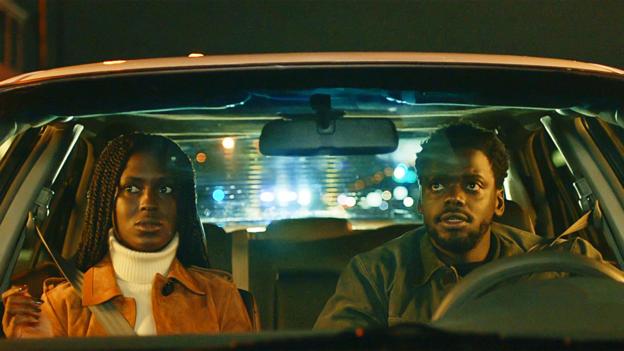
Queen, a hypercritical attorney, is the polar opposite of Slim, who is a laidback religious grocer. The unlikely relationship that develops between the two throughout the film is clearly circumstantial and out of convenience.
Although Queen is a highly educated attorney, her contentious character is surprisingly rough around the edges. Just about every decision for the two escapees are made by her. She knows how to tout guns, jump out of elevated windows, rob gas station clerks, and stuff people in trunks. Queen also has ties to a local Louisiana pimp, who also happens to be her uncle (Woodbine), the only family member she has left. From the outside, Queen is as hood as they come.
On the other hand, a demure Slim comes from a two-parent household in Ohio. He prays before he eats, wears a cross around his neck, and drives a modest car with license plates that say “TrustGod”. He’s the type of man that stays out of trouble and forgives small indiscretions. He comes across as very passive. Oftentimes, Queen is found speaking for him and being the frontman for every confrontation.
Waithe never reveals why Queen carries such a major chip on her shoulder, with the exception of her just losing a case where her client was sentenced to the death penalty and the fact that her mother was murdered by her uncle.
But, her disdain for cops to the point where she complicates a police stop with her many comments, at one point telling the cop that the reason why Slim’s hand was covering his face was because the cop was shining the flashlight in it or that police like to shoot first and ask questions later, leaves the impression that she is an innately angry person with a indefatigable impulse to mouth off. This is proven time and time again as she gets in disputes with a local mechanic, her uncle, and Slim.
Queen’s character would’ve made more sense if perhaps her mother was killed by police or her client was actually wrongfully accused. But, the script never fully justifies her disposition.
A person who has never encountered a corrupted policeman, never experienced being racially profiled or simply doesn’t understand the black experience will leave this film with many questions, one being why is an attorney advising someone she barely knows to run away with her from a scene in which a cop was killed out of self-defense? There’s a dashcam recording the entire incident, although irritating, Queen didn’t break any laws by speaking aggressively to the cop, and Slim was simply trying to preserve his life.
To be fair, this perspective is not totally realistic. Maybe a white person in this situation would call for an automatic victory in the court of law all in the name of self-defense, but because Queen and Slim are black, there’s no guarantee that even with thorough evidence of innocence the clutches of institutionalized racial injustice will not prevail. So, maybe their only option was to run.
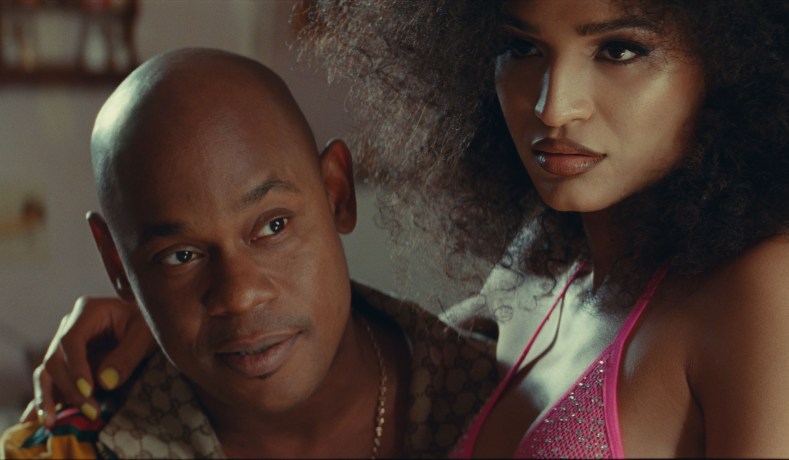
After the action of the first 10 minutes of the film, it pretty much winds down to a romantic journey filled with moments of the two self-reflecting and appreciating life together. Those expecting a fast-paced, action-packed thriller may be disappointed. Many scenes are of Queen and Slim riding in the car together simply talking.
The long drives give the audience a moment to appreciate the outstanding cinematography, dope music score, and incredible acting. Small deposits of culture are infused throughout the film as Queen and Slim navigate the southern states of Georgia, Louisiana and eventually, Florida, to make their escape. Stops throughout the state reveal that some people are in support of the two fugitives, while others disagree with their actions.
Pacing of the film picks up again when Queen and Slim decide to consecrate their relationship with sex in the car near the gravesite of Queen’s mother. The sex scene is intertwined with cuts of a protest between a community and policemen. The scenario is simultaneously intriguing, awkward, and distressing.
By the end of the road, literally, Queen and Slim have become small-town heroes to those outraged by the injustices at the hands of police. For six days, the couple ride it out until their ultimate demise.
While the emotion of love doesn’t exactly exude out of the screen, the bond Queen and Slim create out of the desire to live leaves the audience desperate to see the good guys win for once. Queen & Slim is a worthwhile watch and definitely a catalyst for dialogue and debate.
